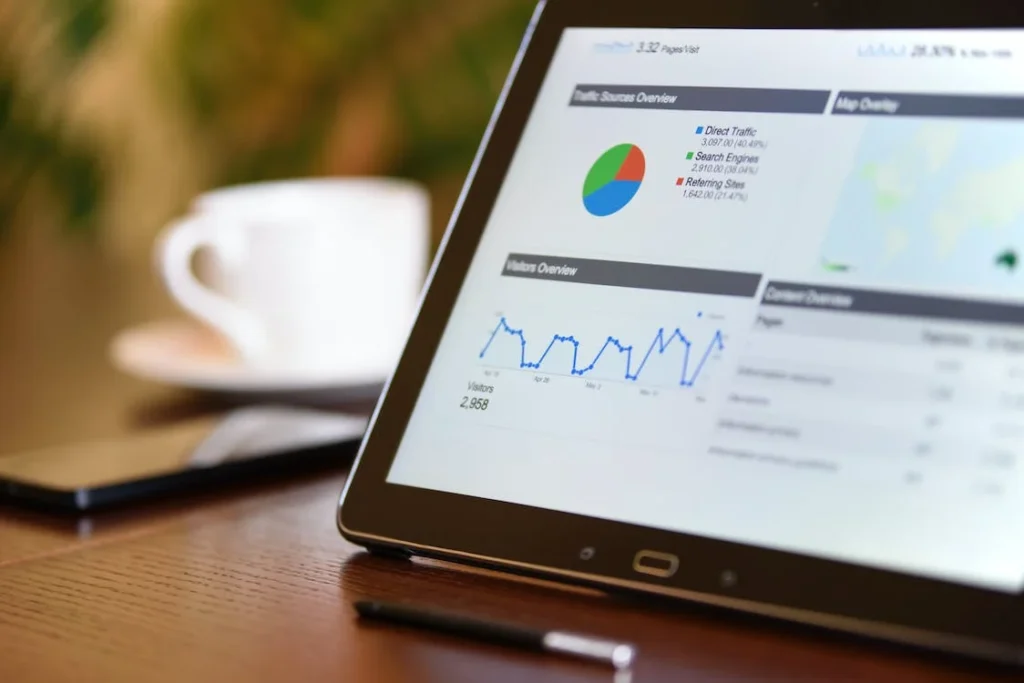In today’s digital landscape, the quest for leads is a journey filled with both challenges and opportunities. As businesses strive to expand their reach and engage potential customers, the role of artificial intelligence (AI) in lead generation has become increasingly significant. AI-powered lead generation strategies have transformed the way businesses identify, nurture, and convert leads into loyal customers.
In this comprehensive guide, we will embark on a journey into the world of AI-powered lead generation. We will explore the fundamental concepts, delve into the intricacies of AI-driven strategies, and uncover the tools and techniques that drive success. Join us as we unravel the power of AI in reshaping the lead generation landscape.
The Foundation of AI-Powered Lead Generation
Before we dive into the depths of AI-driven strategies, let’s lay the groundwork by understanding the foundational concepts:
Lead Generation in the Digital Age:
- Lead generation is the process of identifying and attracting potential customers, often referred to as leads, who have expressed interest in a product or service. In today’s digital age, this process has evolved to encompass various online channels and platforms.
The Rise of Artificial Intelligence:
- Artificial intelligence, or AI, refers to the simulation of human intelligence by computer systems. AI technologies, such as machine learning and natural language processing, enable computers to analyze data, make predictions, and automate tasks with remarkable accuracy.
AI and Data-Driven Insights:
- AI thrives on data. It has the ability to analyze vast amounts of data quickly and extract valuable insights. In the context of lead generation, AI leverages data to identify potential leads, personalize marketing efforts, and predict conversion outcomes.
The Shift Towards Personalization:
- Modern consumers expect personalized experiences. AI-powered lead generation excels in delivering personalized content, recommendations, and communication that resonates with individual leads, increasing the likelihood of conversion.
Automation for Efficiency:
- AI automates repetitive tasks, allowing marketing and sales teams to focus on high-value activities. This automation not only improves efficiency but also ensures timely follow-ups with leads.
Predictive Lead Scoring:
- AI employs predictive algorithms to score leads based on their likelihood to convert. This dynamic scoring system helps prioritize leads for more targeted engagement.
AI-Powered Lead Generation Strategies: Unleashing the Potential
Artificial intelligence has ushered in a new era of lead generation, characterized by precision, automation, and personalization. Let’s explore the strategies that harness the potential of AI to generate high-quality leads:
Predictive Lead Scoring:
- Predictive lead scoring is at the forefront of AI-driven lead generation. This strategy uses machine learning algorithms to analyze historical data and identify patterns associated with lead conversions. Leads are assigned scores based on their propensity to convert, allowing sales teams to prioritize their efforts effectively.
Behavioral Analysis and Segmentation:
- AI analyzes the online behavior of leads to gain insights into their interests and preferences. This information is then used to segment leads into groups with similar characteristics. By tailoring content and communication to these segments, businesses can increase engagement and conversion rates.
Chatbots and Conversational AI:
- Chatbots powered by AI provide real-time, personalized interactions with website visitors. They can answer questions, offer recommendations, and even capture lead information. Conversational AI tools engage leads in meaningful conversations, nurturing them through the sales funnel.
Content Personalization:
- AI algorithms analyze lead data to deliver highly personalized content recommendations. Whether it’s suggesting blog posts, products, or emails, AI ensures that each interaction with a lead is relevant and engaging.
Lead Scoring Refinement:
- AI continuously refines lead scoring models based on new data and insights. This dynamic approach ensures that lead scores remain accurate and reflective of a lead’s changing behavior and intent.
Natural Language Processing (NLP) for Lead Insights:
- NLP enables AI to analyze unstructured data sources, such as social media posts and customer reviews, to extract valuable insights about leads. This information can inform lead profiles and content strategies.
Lead Nurturing Sequences:
- AI-powered marketing automation platforms create lead nurturing sequences that adapt based on a lead’s behavior. Leads receive targeted emails and content at the right time, increasing the chances of conversion.
Social Media Listening and Engagement:
- AI tools monitor social media conversations and engagements related to your industry or products. When potential leads express interest or ask questions, AI can initiate conversations or direct them to relevant resources.
Lookalike Audience Modeling:
- AI can identify patterns among your existing customers and use them to find similar leads, known as lookalike audiences. This strategy broadens your reach to potential leads who share characteristics with your best customers.
Tools and Technologies Driving AI-Powered Lead Generation
Behind the scenes of AI-powered lead generation, a range of sophisticated tools and technologies work tirelessly to analyze data, automate tasks, and deliver personalized experiences. Let’s explore the essential tools and technologies that drive the success of AI in lead generation:
Customer Relationship Management (CRM) Systems:
- Leading CRM systems like Salesforce, HubSpot, and Microsoft Dynamics integrate AI features for lead management. They help businesses organize, analyze, and nurture leads effectively.
Marketing Automation Platforms:
- Marketing automation tools such as Marketo, Pardot, and Eloqua leverage AI to automate lead nurturing, scoring, and campaign optimization. They ensure that leads receive timely, personalized content.
Predictive Analytics Software:
- Predictive analytics tools like RapidMiner and DataRobot employ AI and machine learning to identify patterns in lead data. They assist in predictive lead scoring and identifying high-conversion opportunities.
Chatbot and Conversational AI Platforms:
- Platforms like Intercom, Drift, and Chatfuel offer AI-driven chatbots and conversational AI solutions. They engage leads in real-time conversations, gather information, and provide immediate assistance.
Personalization Engines:
- Personalization engines such as Dynamic Yield and Evergage use AI to deliver tailored content and product recommendations across websites, emails, and other marketing channels.
Natural Language Processing (NLP) Tools:
- NLP tools like Google’s BERT and spaCy enable AI to understand and analyze human language. They are crucial for sentiment analysis, content insights, and chatbot interactions.
Lead Scoring Software:
- Dedicated lead scoring software like Lattice and Infer specialize in predictive lead scoring. They employ AI algorithms to assign lead scores based on behavior, demographics, and engagement.
Data Enrichment Services:
- Data enrichment services such as Clearbit and ZoomInfo enhance lead data with additional information. AI algorithms source and append data to enrich lead profiles.
Social Media Monitoring and Engagement Tools:
- AI-powered social media tools like Hootsuite and Sprout Social monitor social platforms for lead-related conversations. They enable businesses to engage with leads in real time.

Related: Check out our free SEO suite

The Crucial Role of Data in AI-Powered Lead Generation
At the heart of AI-powered lead generation lies a treasure trove of data. Data fuels AI algorithms, enabling them to make informed decisions, predict lead behavior, and personalize interactions. Let’s uncover the vital aspects of data in this context:
Data Collection:
- AI relies on data collection mechanisms to gather information about leads. This includes data from web forms, CRM systems, social media interactions, and website behavior.
Data Integration:
- Businesses integrate data from various sources, such as CRM systems, marketing automation platforms, and lead enrichment services, to create comprehensive lead profiles.
Data Cleansing and Enrichment:
- AI-powered tools cleanse and enrich lead data by correcting inaccuracies, appending missing information, and ensuring data quality.
Data Storage and Management:
- Robust data storage and management systems are essential to store and organize vast volumes of lead data. Cloud-based solutions are often employed for scalability.
Data Security:
- Safeguarding lead data is paramount. AI-powered lead generation systems implement robust security measures to protect sensitive information and comply with data privacy regulations.
Data Processing and Analysis:
- AI algorithms process and analyze lead data to identify patterns, behaviors, and trends. This analysis drives lead scoring, segmentation, and personalization.
Data-Driven Insights:
- The insights derived from data analysis inform lead generation strategies. AI uncovers which tactics are most effective in attracting and converting leads.
Real-Time Data:
- AI thrives on real-time data. Businesses ensure that lead data is up-to-date, enabling timely responses and personalized interactions.
Data Privacy Compliance:
- AI-powered lead generation systems adhere to data privacy regulations such as GDPR and CCPA. Leads’ consent and preferences are respected and managed accordingly.
Feedback Loops:
- AI systems continuously learn and improve through feedback loops. The data generated from lead interactions informs AI algorithms for better predictions and personalization.
Data-Driven Content Creation:
- AI analyzes lead data to understand content preferences. This insight guides the creation of content that resonates with leads.
Data for Lead Scoring:
- Lead scoring relies heavily on data. AI examines lead attributes, behavior, and engagement to assign scores accurately.
Data for Personalization:
- Personalization is a hallmark of AI-driven lead generation. Data on lead preferences, history, and interactions drive personalized experiences.
Data for Targeted Marketing:
- AI identifies the most receptive audiences for marketing campaigns. Data-driven targeting ensures that resources are allocated efficiently.
Data for Lead Nurturing:
- Lead nurturing sequences are data-informed. AI tracks lead progress and tailors nurturing content accordingly.
Data for Reporting and Analytics:
- AI generates reports and analytics based on lead data. These insights guide strategic decisions and optimizations.
Conclusion: Navigating the AI-Powered Lead Generation Frontier
In the rapidly evolving landscape of lead generation, artificial intelligence stands as a formidable ally. AI-powered lead generation strategies have redefined how businesses identify, engage, and convert potential customers.
READ NEXT:
- SEO for Online Trading Platforms
- How to Utilize Viral Content for Lead Engagement
- 19 Best Marketing Automation Tools for e-Commerce: A Deep Dive!
- 23 Tips to Perfect Your Outbound Prospecting Strategy
- 231+ Marketing Tools and Software to Skyrocket your Marketing ROI






















Comments are closed.